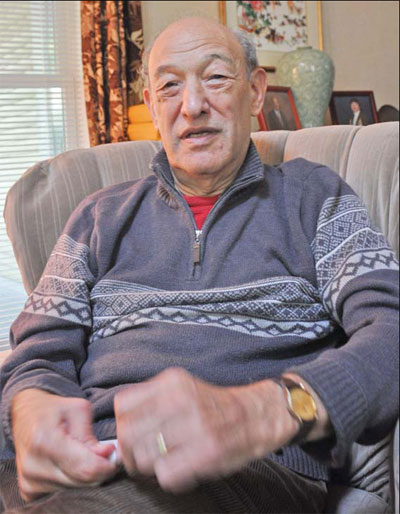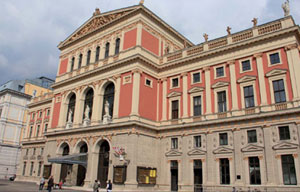Deng's great legacy
Updated: 2011-10-28 09:29
By Chen Weihua (China Daily)
|
|||||||||
|
The China scholar Ezra Vogel says while China's success has off ered much for others to learn from, there is no set model. [Chen Weihua / China Daily] |
A Western scholar writes on the life and times of the man who helped transform China
In 2000, the China scholar Ezra Vogel was thinking about writing a book to help Americans understand key developments in Asia when he was about to retire from teaching at Harvard University. When his friend Don Oberdorfer, a veteran journalist, suggested he should write about the Chinese leader Deng Xiaoping, Vogel thought about it for many weeks, and concluded that the idea was exactly right.
For the past 10 years, Vogel has researched Deng extensively. He has read books about him, traveled to China numerous times and interviewed hundreds of influential Chinese and foreigners, as he mentions in the preface of his new book, Deng Xiaoping and the Transformation of China.
The book, published by Harvard University Press last month, chronicles Deng's rich and intricate life and career from his birth on Aug 22, 1904 in a weakened Qing Dynasty (1644-1911) to his death on Feb 19, 1997, a few months before the return of Hong Kong to the motherland. That time span also takes in the country's turmoil and an economic boom in the last three decades.
"Deng made more contribution to China than any other leader in the 20th century because he put the country on a path to the future," Vogel tells China Daily at his home in Cambridge, Massachusetts. "China was so lucky to have such a leader to bring such progress.
"Nobody in the West in 1978 imagined that the Chinese Communist Party could lead a country to grow faster than capitalist countries. Even scholars had no idea."
He concludes in his book that all the favorable conditions that China enjoyed in 1978 would have been insufficient to transform the huge, chaotic civilization into a modern nation without a strong and able leader who could hold the country together while providing strategic direction. It was Deng who finally realized the mission that other Chinese leaders had tried for almost two centuries to achieve, of finding a path that would make China rich and powerful.
While admiring Deng personally, Vogel says that as a Western scholar he has tried to present an objective picture and point out the different views. But he has also felt that China is so big with so many different views, he cannot possibly explain everything.
As a biographer he felt the responsibility to explain Deng's point of view and why he made the historic decisions.
Writing about Deng was particularly tough, Vogel says, because Deng wrote almost nothing himself. "It took a long time trying to put the pieces together."
The 81-year-old China scholar believes it was no accident for Deng to be a capable and pragmatic leader, given his many ups and downs, and he had "seen so much and thought so much and had always been around".
In Vogel eyes, Deng had enormous range of governing experience at the local, regional and national levels that he could draw on.
He believes Deng's experience in fighting in war had shaped his style.
Deng was an extremely confident person from when he was young, Vogel says. He was not one who thought about only the Party or himself. "I think he always thought about the overall situation ... And the important thing for Deng since 1978 was always to improve the livelihood of Chinese people and the economy," Vogel says.
He argues that there was no way to prove one way or the other if China could be even more successful if China had introduced more democracy. "China is so big and so vast. We have been surprised so many times. As much as I studied, I don't think I can speak with confidence what will happen."
Even if Vogel heaps much praise on Deng, he believes Hua Guofeng, who succeeded Mao after his death, was the one who initiated the reform and opening-up.
Deng's personal charisma aside, Vogel found qifen, or the atmosphere in the high levels of the Party, has been vital for top leaders to make big changes since 1978 and that will remain true in the years to come.
Vogel believes that while China's success has offered much for others, especially developing countries, to learn from, there is no set model. "Deng was very smart. He didn't exactly have a model. He wanted to learn the best thing from everywhere and adapt to the needs of his own country."
The Harvard scholar believes every country should do that, and he still believes the US system is better if one does not have to worry about serious public disorder. He points out China's many serious challenges such as in fighting corruption, protecting the environment and enforcing the rule of law.
Vogel is known among most Chinese by the name Fu Gaoyi, and few probably know that he is also foremost among scholars of Japan. The Japanese edition of his book Japan as Number One: Lessons for America (1979) is the all-time best-seller in Japan of non-fiction by a Western author.
In fact, after receiving his PhD in sociology from Harvard and spending two years in Japan in the late 1950s, his main interest was Japan. But when people like John Fairbank, the then top China scholar at Harvard, called him in 1961 about studying Chinese history and language with a three-year fellowship, he immediately accepted.
"I didn't seek it, I was given the opportunity," recalls Vogel, who now not only speaks fluent Chinese, but reads and writes the language.
For half a century, China and Japan have continued to be his keen interest. Besides spending the past decade writing the book on Deng, Vogel has also organized a series of conferences between Chinese, Japanese and Western scholars to jointly examine the China War of 1937-1945, known in China as the War of Resistance against Japan.
"In the future it's very necessary for China and Japan to get along, and I know that World War II was one of the biggest problems interfering with their ability to get along. I think I have a special responsibility and opportunity because I know both China and Japan."
He counseled both countries to make more effort to build trust and friendship, and to work on projects together. "In the 1980s Deng did very good things. He tried to introduce Japanese movies, television and novels, literature of all kinds." Deng learned a lot from Japan on how to modernize industry, improve quality control and be efficient, Vogel says.
Making his first visit to China in May 1973 with a delegation from the National Academy of Sciences, Vogel met the then premier Zhou Enlai and other high officials, and regretted that he never had a chance to meet and talk with Deng in person. The closest contact was at the National Gallery in Washington in January 1979 when Deng was making a speech during an official visit to the US.
While visiting China at least once or twice a year since 1980, Vogel feels it is the relatively longer stays that have helped him understand the fast-changing country. He spent two months at Sun Yat-Sen University in Guangzhou in 1980 and seven months in Guangdong in 1987. For the book on Deng he spent another seven months in Beijing, Shanghai and other places in China.
Vogel, who has written several important books on China, says the book on Deng is the most important book he has written. It also took much longer than any of his previous books.
Asked if he plans to write another book, he gave a firm no. "I will spend the next year talking about the book and trying to educate people."












